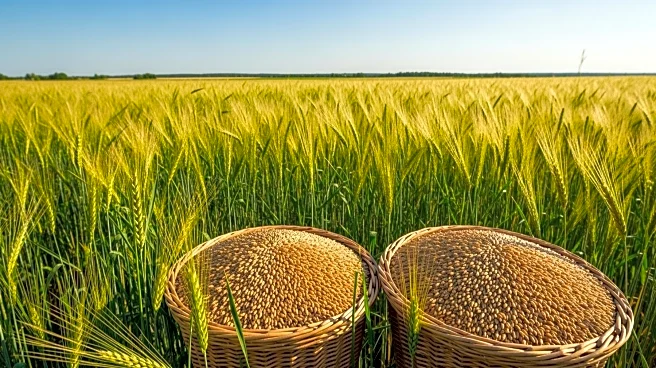What's Happening?
Agriculture and Farmers’ Welfare Minister Ratan Lal Nath announced that two more districts in Tripura, Dhalai and Khowai, are set to achieve self-sufficiency in food grain production. This development is part of the state government's focus on urban farming and organic agriculture. Currently, South Tripura, Sepahijala, and Gomati districts are already self-sufficient. The announcement was made following Prime Minister Narendra Modi's launch of two major agricultural schemes, PM Dhan Dhaanya Krishi Yojana and Dalhan Atmanirbharta Mission, with a budget of Rs 35,440 crore. These initiatives aim to boost agricultural productivity across 100 districts, including North Tripura, which faces challenges in food grain production.
Why It's Important?
The move towards self-sufficiency in food grain production in Tripura is significant for the state's agricultural sector, which is challenged by limited cultivable land and insect attacks. Achieving self-sufficiency can reduce dependency on imports and enhance food security. The focus on urban farming and organic agriculture aligns with broader national goals of sustainable agricultural practices. The Prime Minister's schemes are expected to provide financial support and resources to improve productivity, which could lead to economic growth and stability in the region. Farmers stand to benefit from increased production capabilities and potential market expansion.
What's Next?
The state government will continue to encourage farmers to increase pulse production and focus on organic farming. Monitoring of agricultural loans and production levels will be crucial to ensure the success of these initiatives. The government may also explore expanding urban farming practices to other districts facing land constraints. Stakeholders, including farmers and local officials, are expected to collaborate closely to implement the schemes effectively. The success of these efforts could serve as a model for other regions facing similar agricultural challenges.
Beyond the Headlines
The emphasis on organic farming and urban agriculture reflects a shift towards sustainable practices that could have long-term environmental benefits. These initiatives may also influence cultural attitudes towards farming, encouraging younger generations to engage in agriculture. The focus on self-sufficiency could lead to increased resilience against climate change impacts, as local production reduces reliance on external sources.








